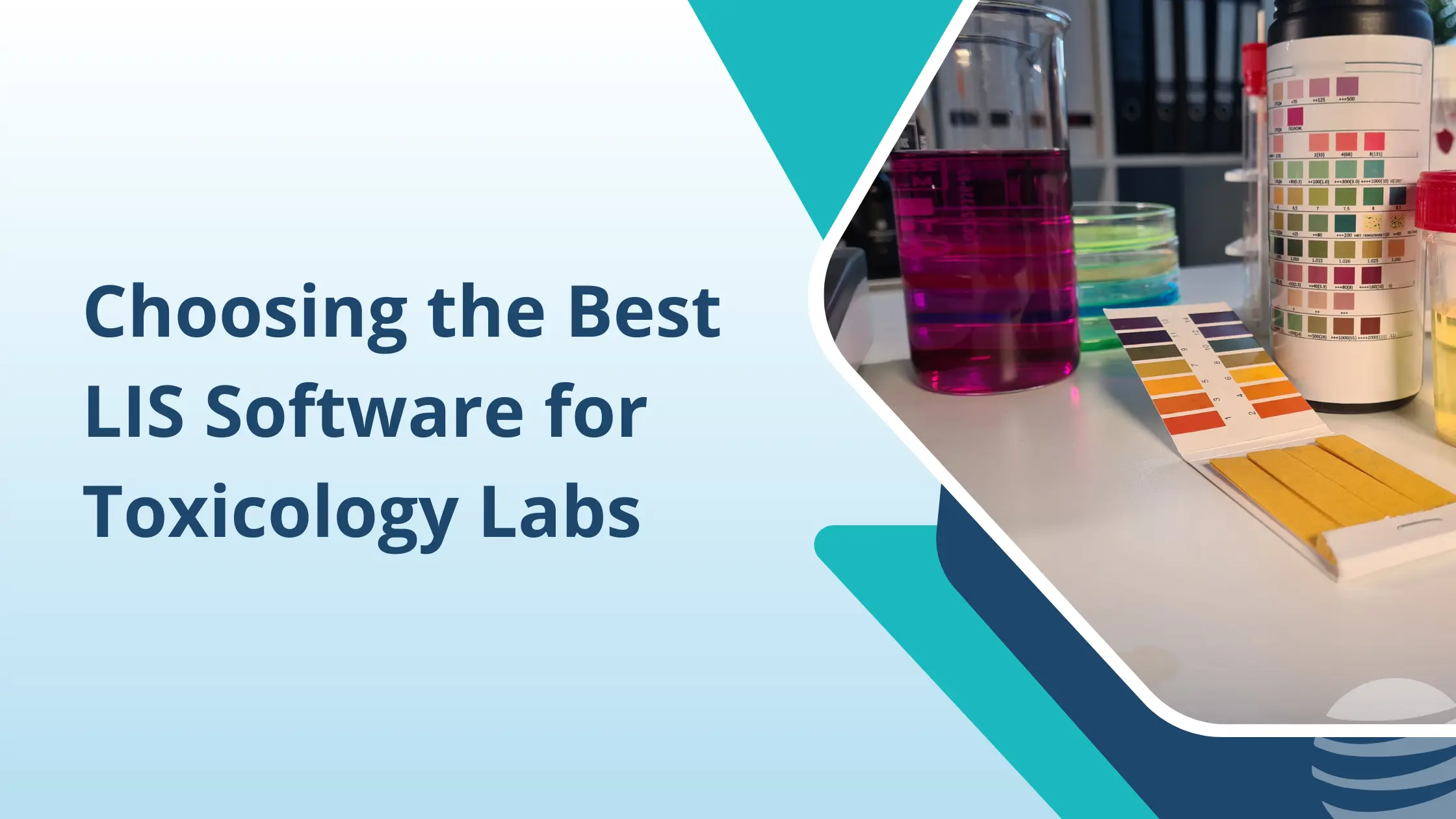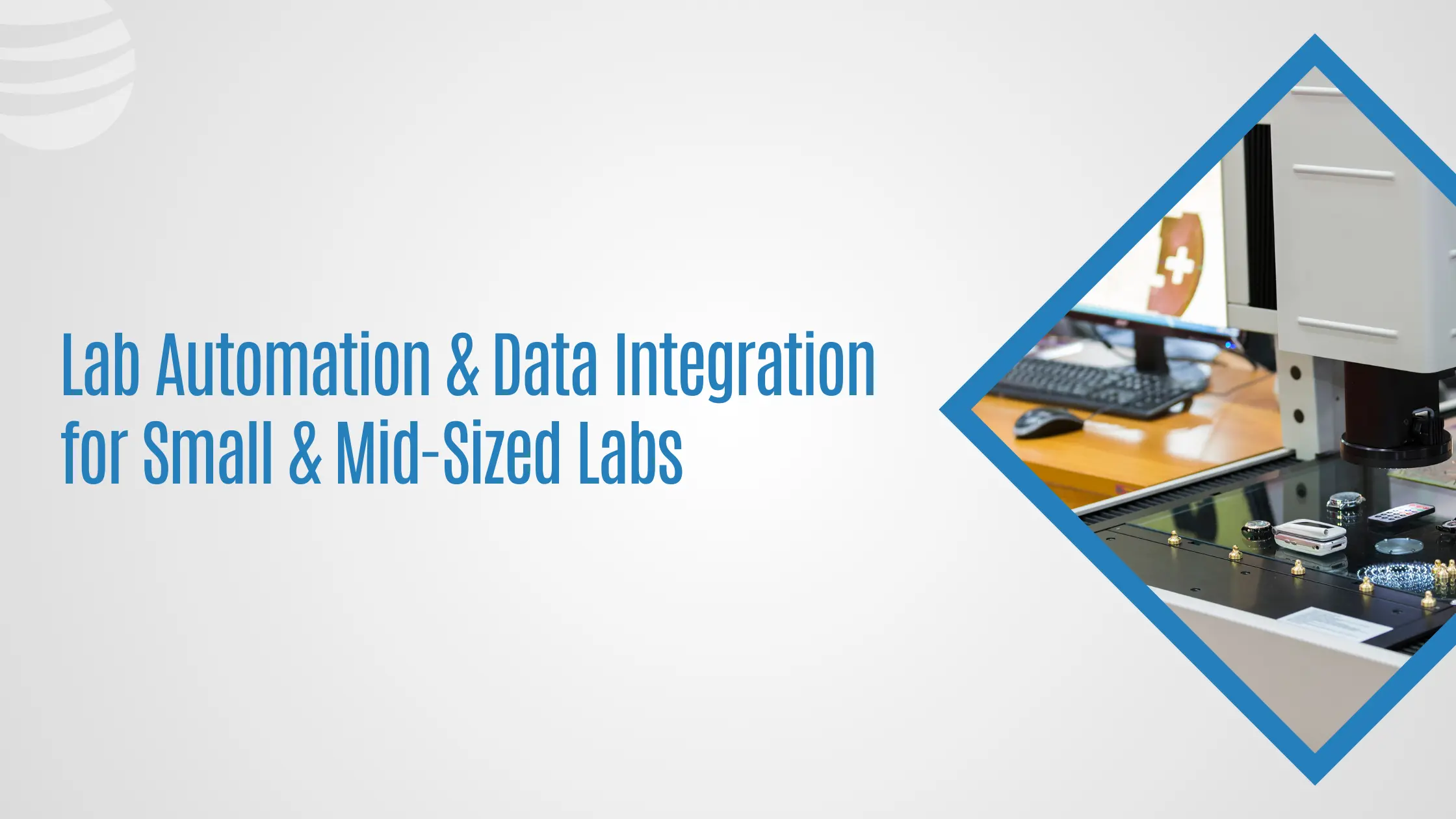

Choosing the Best LIS Software for Toxicology Lab
Choosing the Best LIS Software for Toxicology Lab
Laboratory Information Systems (LIS) play a crucial role in toxicology labs, where accuracy, compliance, and efficiency are paramount. Selecting the right LIS software can significantly impact the quality of lab operations, from sample management and data tracking to regulatory reporting and workflow optimization. This article will provide an in-depth guide to choosing the best LIS software for toxicology lab, exploring key features, industry-specific needs, and essential considerations to help you make an informed decision.
Why Toxicology Labs Need Specialized LIS Software
Toxicology labs deal with complex testing methodologies, regulatory requirements, and a high volume of samples. Generic LIS software may not address the unique challenges that toxicology lab face, such as compliance with specific regulations like CLIA, HIPAA, and FDA standards. Moreover, toxicology testing often involves complex workflows, including sample chain-of-custody tracking, integration with mass spectrometry instruments, and comprehensive reporting capabilities.
Choosing specialized LIS software designed for toxicology lab ensures that your lab can meet these demands while improving efficiency, reducing errors, and maintaining compliance with both laboratory and industry standards.
Key Features of LIS Software for Toxicology Lab
When evaluating LIS software for a toxicology lab, there are several important features to consider. These features not only ensure the smooth functioning of your lab but also enhance the accuracy and reliability of your testing processes.
1. Regulatory Compliance
Regulatory compliance is one of the most critical aspects of any LIS software used in toxicology lab. The software must support compliance with federal, state, and local regulations, including those from:
- CLIA (Clinical Laboratory Improvement Amendments)
- HIPAA (Health Insurance Portability and Accountability Act)
- FDA (Food and Drug Administration)
Additionally, the LIS should facilitate easy reporting to regulatory bodies such as SAMHSA (Substance Abuse and Mental Health Services Administration) and CAP (College of American Pathologists). Automated audit trails, secure data storage, and privacy safeguards are essential features that help maintain compliance.
2. Sample Chain-of-Custody
Toxicology labs often handle forensic and clinical samples, making it necessary to maintain a strict chain-of-custody protocol. The LIS software should track every step of the sample’s lifecycle, from collection to disposal, ensuring accountability and minimizing the risk of errors or contamination. Look for software that offers:
- Barcode labeling for sample tracking
- Automated logging of sample transfers
- Detailed time-stamped records of sample handling
3. Instrument Integration
Toxicology labs rely on various instruments for testing, such as gas chromatography-mass spectrometry (GC-MS) and liquid chromatography-mass spectrometry (LC-MS). The LIS software should integrate seamlessly with these instruments, allowing for real-time data transfer, automatic result capture, and reduced manual data entry. Smooth integration helps streamline workflows and minimize the risk of human error.
4. Customizable Reporting
Accurate and comprehensive reporting is essential for toxicology labs, especially when dealing with regulatory bodies or legal cases. The best LIS software will offer customizable reporting templates that meet the specific needs of toxicology testing, such as:
- Quantitative and qualitative analysis reports
- Batch testing summaries
- Compliance reports for regulatory agencies
Customizable reporting capabilities also ensure that your lab can quickly generate results in formats required by clients, physicians, or legal authorities.
5. Data Security and HIPAA Compliance
Given the sensitive nature of toxicology results, maintaining data privacy and security is crucial. The LIS software must be HIPAA-compliant, ensuring that patient information is protected throughout the entire laboratory process. Look for software that offers:
- Data encryption
- User access controls and permissions
- Regular software updates and security patches
Data security features help protect against breaches, unauthorized access, and potential penalties associated with non-compliance.
6. Workflow Automation
Automation can significantly improve the efficiency of toxicology labs by reducing manual tasks such as data entry, sample labeling, and report generation. An advanced LIS system should offer workflow automation tools that streamline processes, including:
- Auto-verification of test results
- Automated alerts for test abnormalities or errors
- Integration with electronic health records (EHR) for seamless data exchange
By automating routine tasks, lab technicians can focus on more critical aspects of testing, ultimately improving turnaround times and accuracy.
Considerations When Choosing LIS Software for Toxicology Lab
In addition to core features, there are several broader considerations that toxicology labs should take into account when selecting the right LIS software.
1. Scalability
As your toxicology lab grows, so will your data management needs. Choosing scalable LIS software ensures that your system can handle an increasing volume of samples, tests, and users without compromising performance. Look for a system that allows for easy expansion, whether by adding additional users, integrating more instruments, or expanding storage capabilities.
2. User-Friendly Interface
A user-friendly interface is essential for minimizing training time and reducing errors. Toxicology lab staff often work in fast-paced environments, so the LIS software should be intuitive and easy to navigate. Features like drag-and-drop functionality, customizable dashboards, and clear menus can help technicians quickly access the information they need, improving productivity and reducing the chance of mistakes.
3. Vendor Support and Training
Choosing the right LIS software is not just about the product itself but also about the support that comes with it. Reliable customer service, ongoing technical support, and comprehensive training are critical for smooth implementation and long-term success. When evaluating vendors, consider:
- Initial setup and installation support: Does the vendor offer assistance during installation and configuration?
- Ongoing training: Are there training sessions for new employees or for when new features are rolled out?
- Accessible support: Is customer support available 24/7? Are there multiple channels (phone, email, live chat) for support?
A vendor that provides strong support will help ensure that your lab can quickly address any issues and optimize the use of the LIS software.
4. Customization Options
No two toxicology labs are the same, and different labs may have unique workflows, reporting needs, or testing protocols. The best LIS software will offer customization options to adapt to your lab’s specific requirements. Whether it’s customizing reporting templates, modifying workflows, or adding new fields for data entry, flexibility is crucial to meet the evolving needs of your lab. Customization ensures that the system fits seamlessly into your lab’s operations rather than forcing your team to adapt to rigid, predefined processes.
5. Cloud vs. On-Premise Solutions
When choosing LIS software, you’ll also need to decide between cloud-based and on-premise solutions. Each option has its own set of benefits and considerations:
-
Cloud-based LIS software: Cloud solutions offer flexibility, scalability, and remote access, allowing lab staff to access data from any location. They also reduce the need for in-house IT infrastructure and maintenance, as updates and backups are typically handled by the vendor. However, cloud-based systems may raise concerns about data security and internet dependency.
-
On-premise LIS software: On-premise solutions are hosted on your lab’s local servers, giving you complete control over data and security. They may be preferable for labs with stringent data security or regulatory requirements. However, on-premise solutions typically require a larger upfront investment in hardware and ongoing maintenance, including software updates and backups.
Evaluate your lab’s specific needs, budget, and infrastructure to determine which deployment model is right for you.
Top LIS Software for Toxicology Lab
While many LIS software solutions are available, some are particularly well-suited for toxicology labs due to their specialized features and functionalities. Below are a few top contenders known for their robust capabilities in the toxicology field:
1. Prolis LIS
Prolis is a comprehensive LIS that integrates seamlessly with a range of laboratory instruments. It offers advanced reporting tools, compliance management, and workflow automation, making it well-suited for high-volume toxicology labs. Prolis’s extensive customization options also allow labs to tailor the system to their unique needs.
2. LabVantage
LabVantage is another top-tier LIS software known for its user-friendly interface and scalability. It supports a wide range of functionalities, including chain-of-custody tracking, data security features, and customizable workflows. LabVantage also offers cloud-based solutions, making it ideal for labs looking for remote access and reduced IT overhead.
3. CloudLIMS
CloudLIMS is a cloud-based LIS designed specifically for clinical and toxicology labs. It offers robust compliance features, including HIPAA and CLIA compliance, and focuses heavily on data security. CloudLIMS is known for its ease of use and affordability, making it an excellent choice for small to mid-sized toxicology labs.
4. Thermo Fisher SampleManager
Designed to offer strong and reliable solutions for toxicology labs. Its intuitive interface, along with its complete test management system and flexible reporting options, makes it a popular choice among labs. It also includes essential features like compliance monitoring, making lab operations smoother while keeping them aligned with industry standards.
5. STARLIMS
Developed by Abbott Informatics, STARLIMS is a versatile LIS solution that supports various lab types, including toxicology labs. It offers robust sample management, instrument integration, and regulatory compliance features. STARLIMS is particularly well-regarded for its scalability and ability to handle large data volumes, making it ideal for growing labs.
Final Thoughts on Choosing the Best LIS Software for Toxicology Lab
Selecting the right LIS software is a critical decision for any toxicology lab. The right system can streamline workflows, enhance accuracy, and ensure compliance with regulatory standards, ultimately improving the quality and efficiency of lab operations. When evaluating different LIS solutions, consider key features such as regulatory compliance, chain-of-custody tracking, instrument integration, customizable reporting, data security, and workflow automation. Additionally, broader considerations like scalability, user-friendliness, vendor support, customization options, and the choice between cloud-based or on-premise solutions will play a significant role in determining which LIS software is best suited for your toxicology lab.
By thoroughly assessing your lab’s specific needs and comparing available options, you can ensure that you choose an LIS system that not only meets your current requirements but is also flexible enough to grow and adapt alongside your lab. Ultimately, the right LIS software will help maximize efficiency, minimize errors, and ensure that your toxicology lab operates with the highest levels of accuracy, compliance, and productivity.


